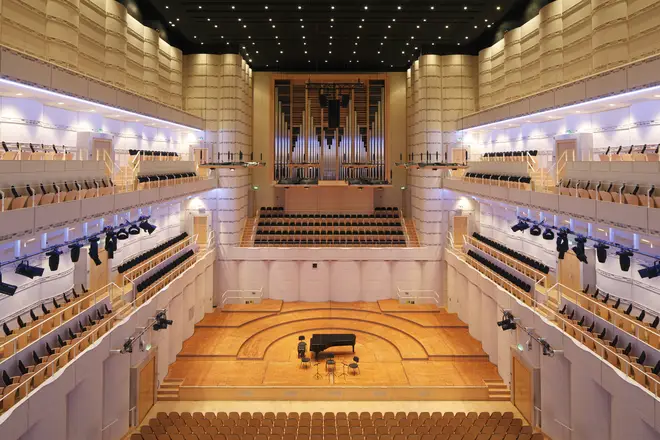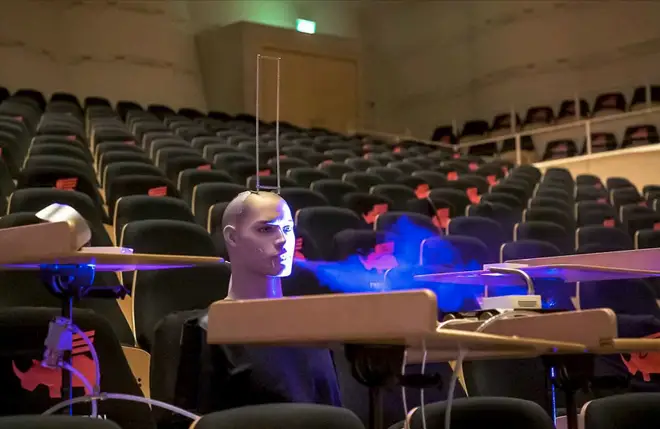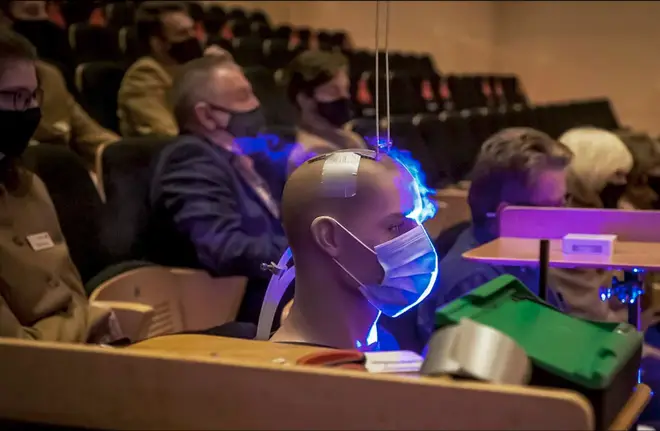On Air Now
Early Breakfast with Lucy Coward 4am - 6:30am
13 January 2021, 13:16

A German concert hall commissioned a study which found that – with the correct ventilation system – arts venues are theoretically ‘covid-safe’ at half audience capacity.
Concert hall closures have been a heavy blow for musicians in Germany, the UK and in all countries shaken by the coronavirus pandemic. And while there has been government aid, it has rarely been enough to offset lost income from cancelled gigs.
In the wake of ongoing closures in its region, in north Germany, the Dortmund Concert Hall decided to commission a study from scientific research organisation, the Fraunhofer Society, to investigate the spatial spread of aerosols and CO2 in a music venue.
The study looks specifically at the risk of infection for audience members when attending concert halls and theatres.
“The best aid program that we can now set up is to give artists a stage again – that is, to reopen concert halls and theatres,” says Raphael von Hoensbroch, director of the Dortmund concert hall. “Because many of the aid programs set up by the state do not reach those affected.”
Extensive tests took place in the venue’s hall and foyer, with a mannequin used to simulate the emission of human breath in the hall. Employees of the concert hall, as well as players from the Dortmund Philharmonic, also took part in the study.
The tests found that in the hall, the risk of COVID-19 infection through aerosol – potentially infectious droplets generated by heavy breathing and talking – transmission was extremely low.
Read more: Singing no riskier than talking for spreading COVID-19, study claims >

The hall’s central ventilation system, combined with all audience members wearing a mask, greatly reduced levels of aerosol and CO2 pollution.
Based on these tests, the study concluded a full audience would not be inconceivable in pandemic times.
However, when also taking into account the access routes – including entrances and corridors – to the hall and foyers, the study recommends the hall only take in half its usual capacity.
It advises a “checkerboard pattern” for the seating arrangement, so that the seat directly in front of an audience member is always free, and that individual is free to remove their mask after taking their seat.
The study concludes these findings could be transferred to other venues, but they would need a similar ventilation system to that at the Dortmund.
“The concert hall cannot trigger a superspreading event with an existing ventilation concept (complete air exchange with outside air every 20 minutes),” the concert hall summarises on its website.
This idea came up in a previous German study, from scientists at Berlin’s Charité hospital who said priority – when halls start to reopen – should be given to venues with ventilation systems that can exchange the air several times an hour.

Isabell Pfeiffer-Poengsen, minister of Culture and Science of the state of North Rhine-Westphalia, describes the study as an “important building block”.
Nevertheless, cultural institutions are still required to stay closed in the western state. “It is all the more important to create perspectives and planning security for the time after the lockdown,” she added.
A spokesperson for the concert hall said: “As soon as this is possible in line with the infection situation, cultural institutions should be able to reopen, based on scientific facts and a full consideration of the respective local conditions.”
In the UK, a full lockdown is currently in place and theatres, opera houses and concert halls are closed until further notice.